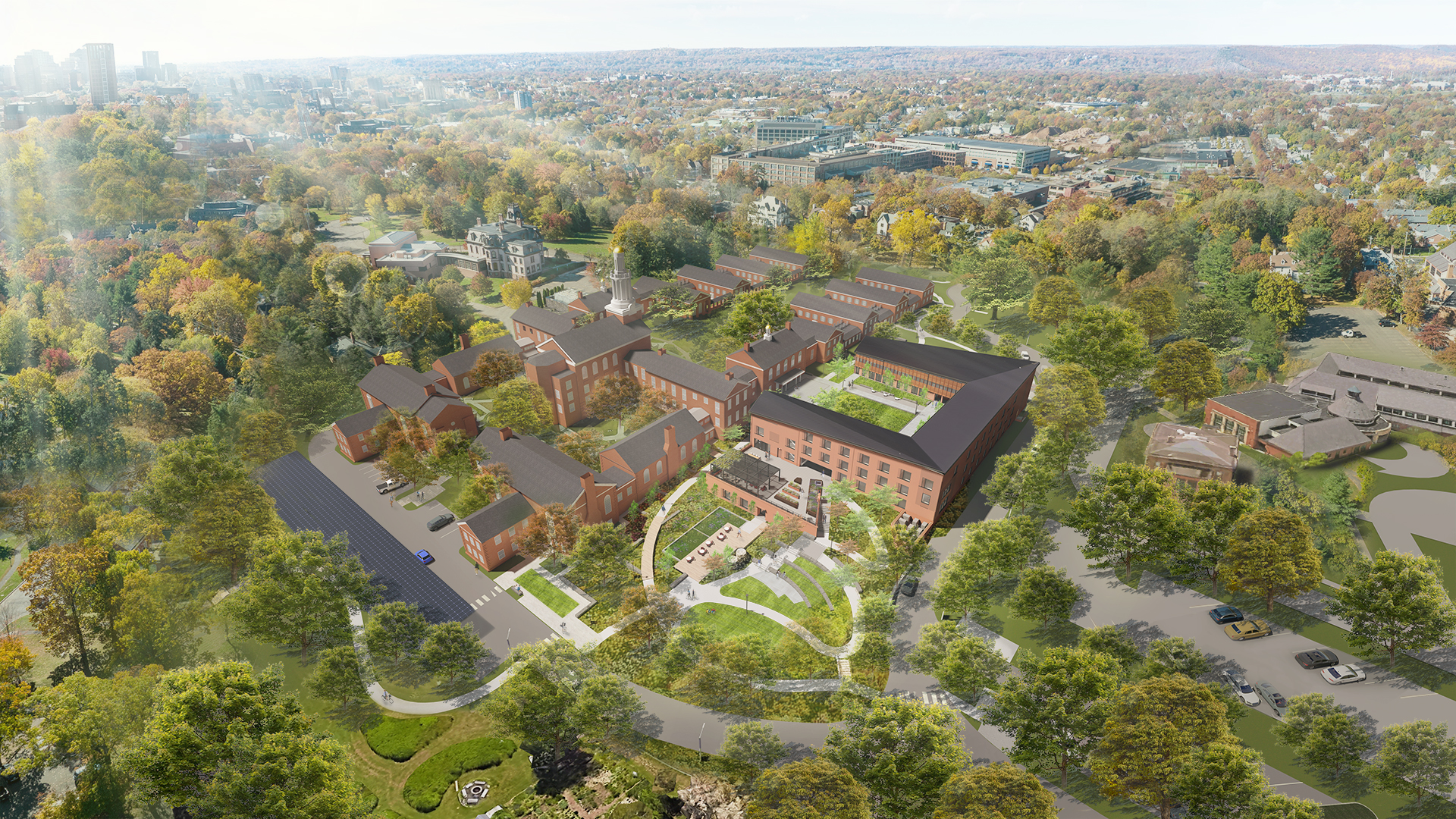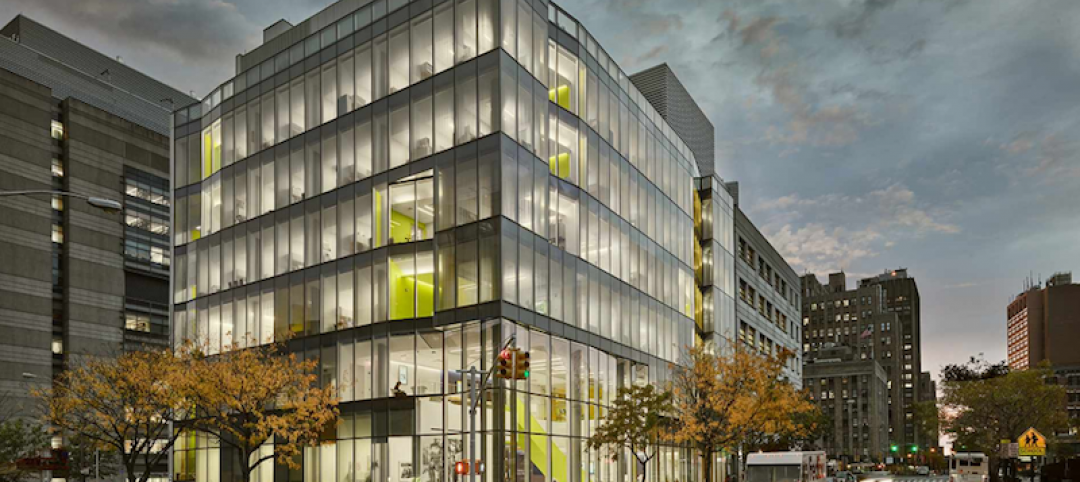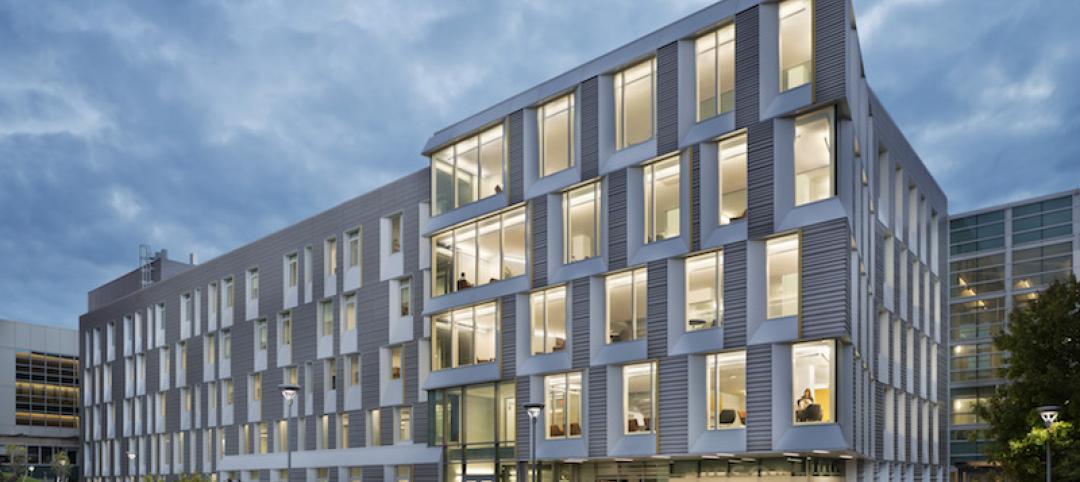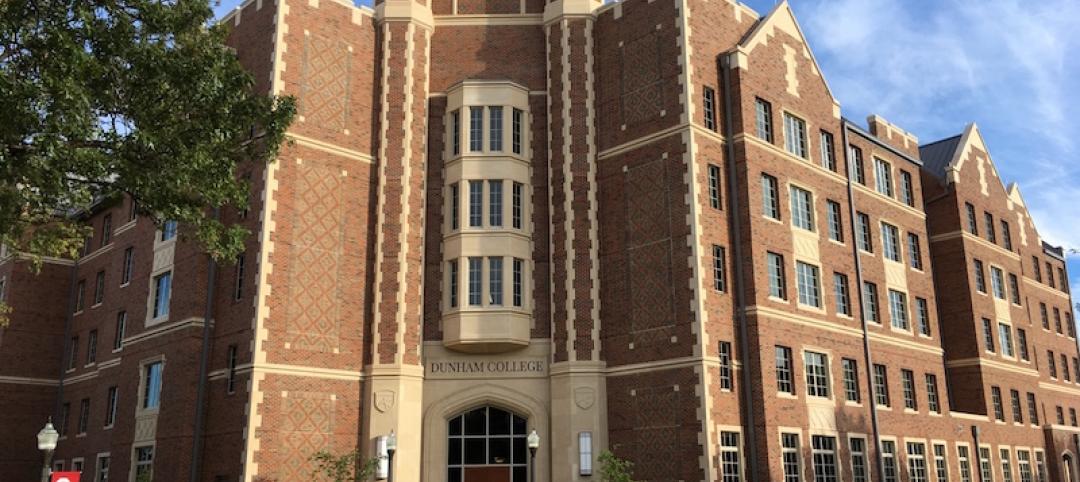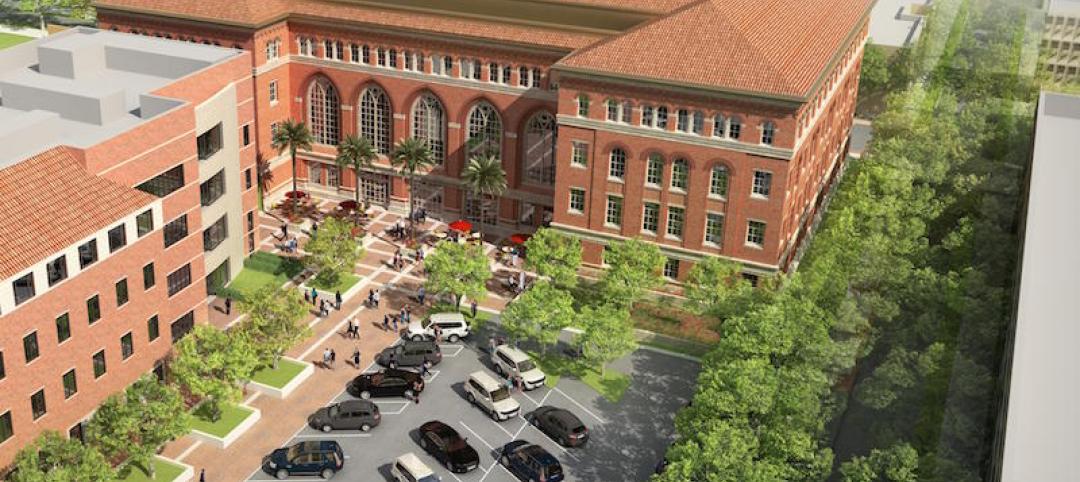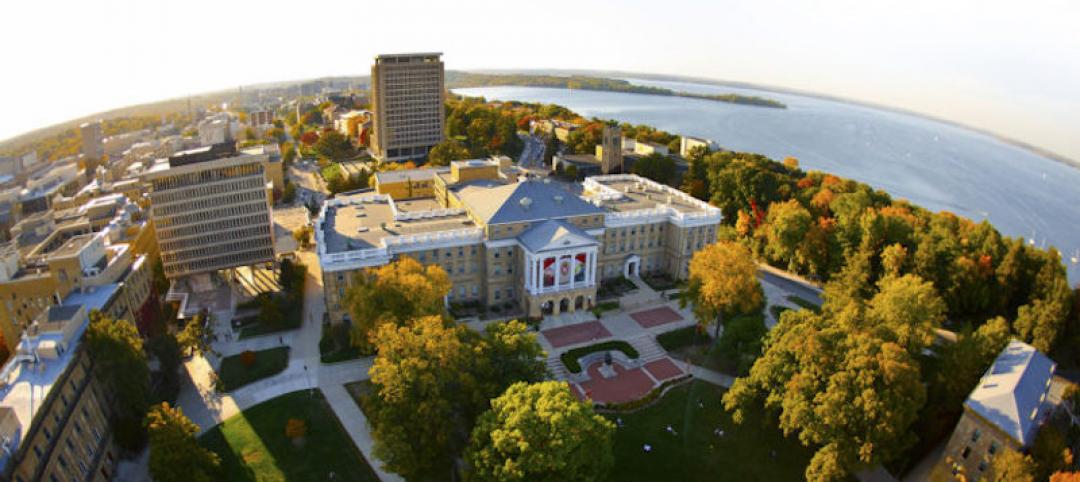A groundbreaking on Oct. 11 kicked off a project aiming to construct the largest Living Building Challenge-certified residence on a university campus. The Living Village, a 45,000 sf home for Yale University Divinity School graduate students, “will make an ecological statement about the need to build in harmony with the natural world while training students to become ‘apostles of the environment’,” according to Bruner/Cott, which is leading the design team that includes Höweler + Yoon Architecture and Andropogon Associates.
Designed to achieve 24.4 EUI (energy use intensity per sf annually), the facility will be net-positive for energy. Solar roof tiles and a photovoltaic canopy over a parking lot will generate 310,000 kWh of electricity, or 105% of the power the residence consumes averaged out over a year, according to Jason Jewhurst, AIA, Principal, Bruner/Cott.
The power system will have a net-metered connection to the grid. “We expect to generate surplus energy for six months of the year,” Jewhurst says. Ducted air-source heat pumps will provide heating and cooling. Fresh air will be supplied by a separate dedicated outdoor air system (DOAS).
A water reclamation system with a capacity for about 900,000 gallons a year will treat greywater for reuse in toilets, laundry, and drip irrigation, Jewhurst says. Underground cisterns will collect rainwater runoff from the roof.
Below-market-rate residential units will range from micro studios to one and two-bedroom apartments. A single-loaded corridor layout ensures that all rooms have views of a central courtyard. Common areas will include lounges, study nooks, and a community kitchen that will host celebrations and events. Outdoor amenities on the 4.5-acre site include an amphitheater, community terrace, and regenerative landscape over a former parking lot.
The superstructure will be assembled using low-carbon mass-timber and dimensional lumber. All building materials will meet the rigorous requirements of the Living Building Challenge’s materials petal that specifies products free of toxins and harmful chemicals.
Real-time water and energy usage monitors will provide residents and the university community with insight on sustainable buildings.
On the project team:
Owner and/or developer: Yale Divinity School
Design architect: Bruner/Cott Architects with Höweler + Yoon Architecture
Landscape Architect: Andropogon Associates
MEP engineer: van Zelm Engineers
Structural engineer: Silman
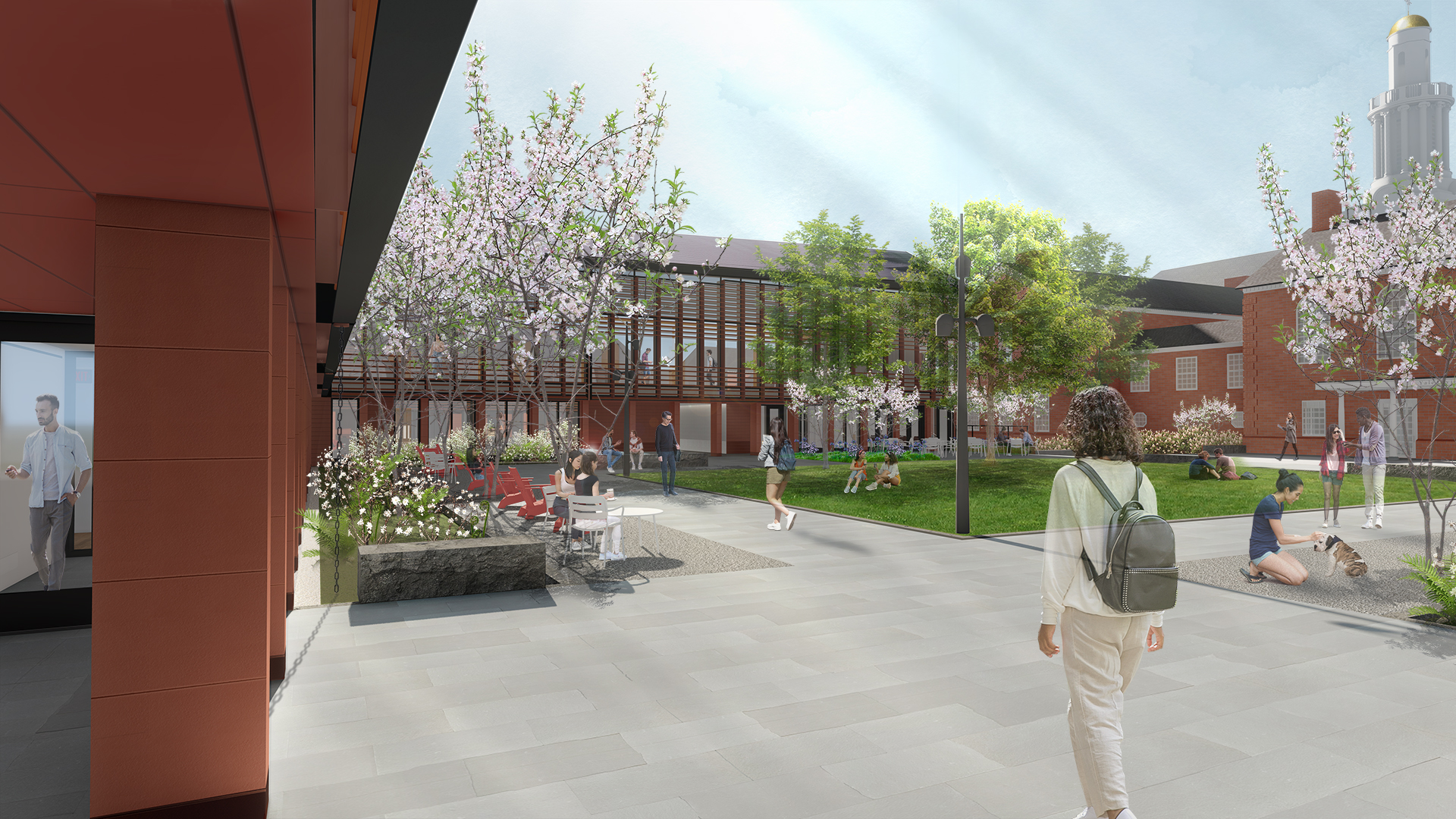
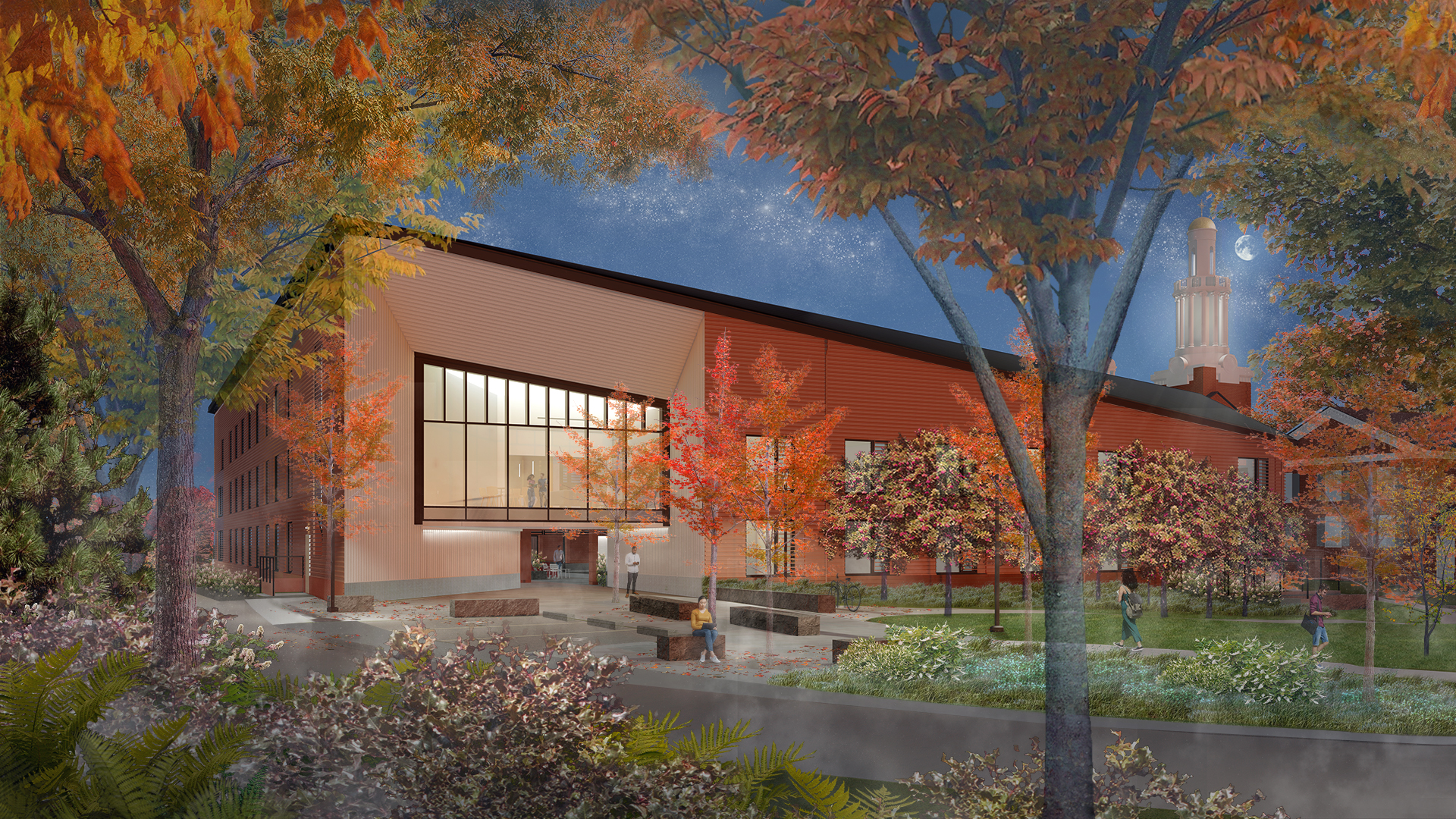
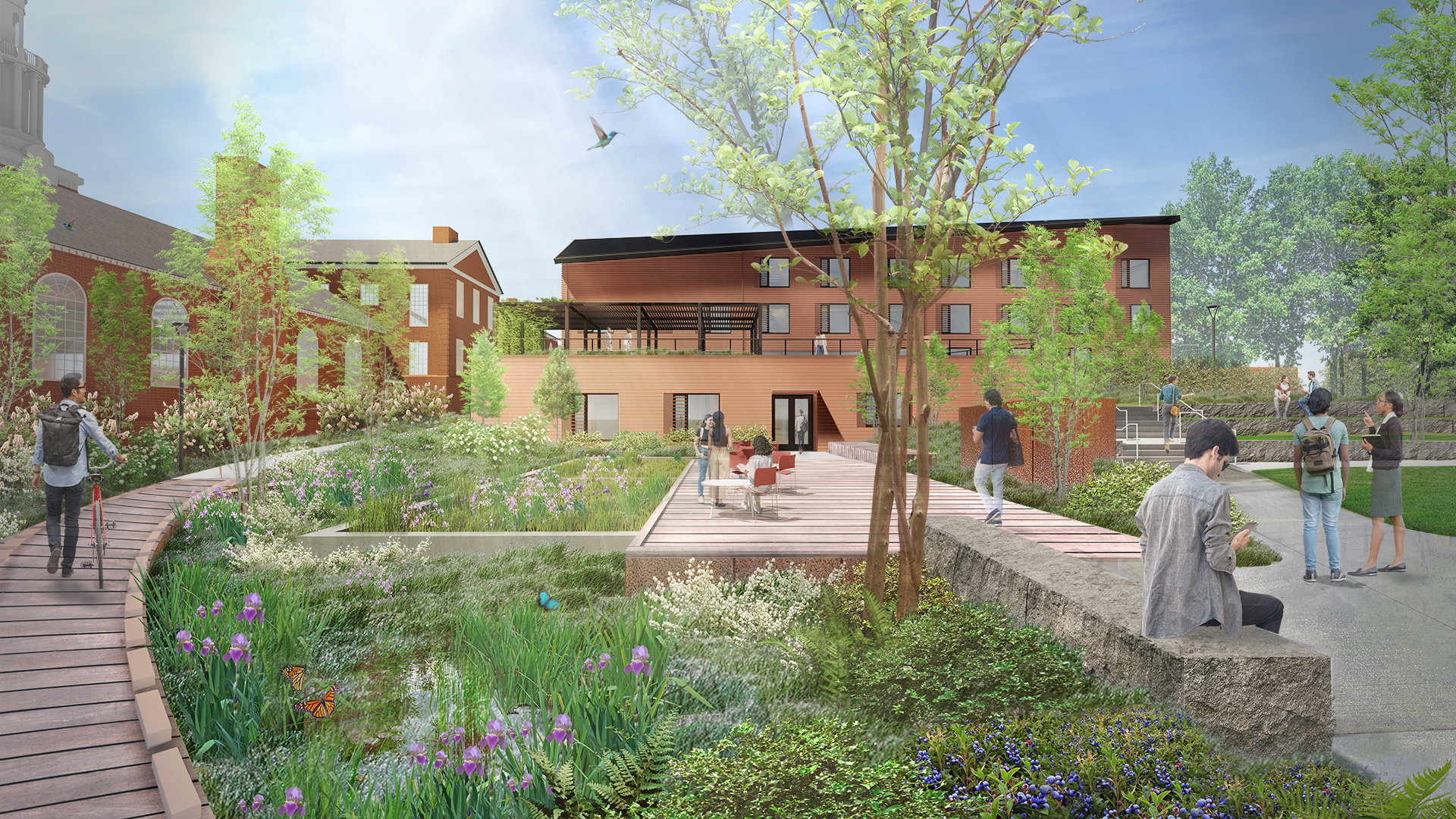
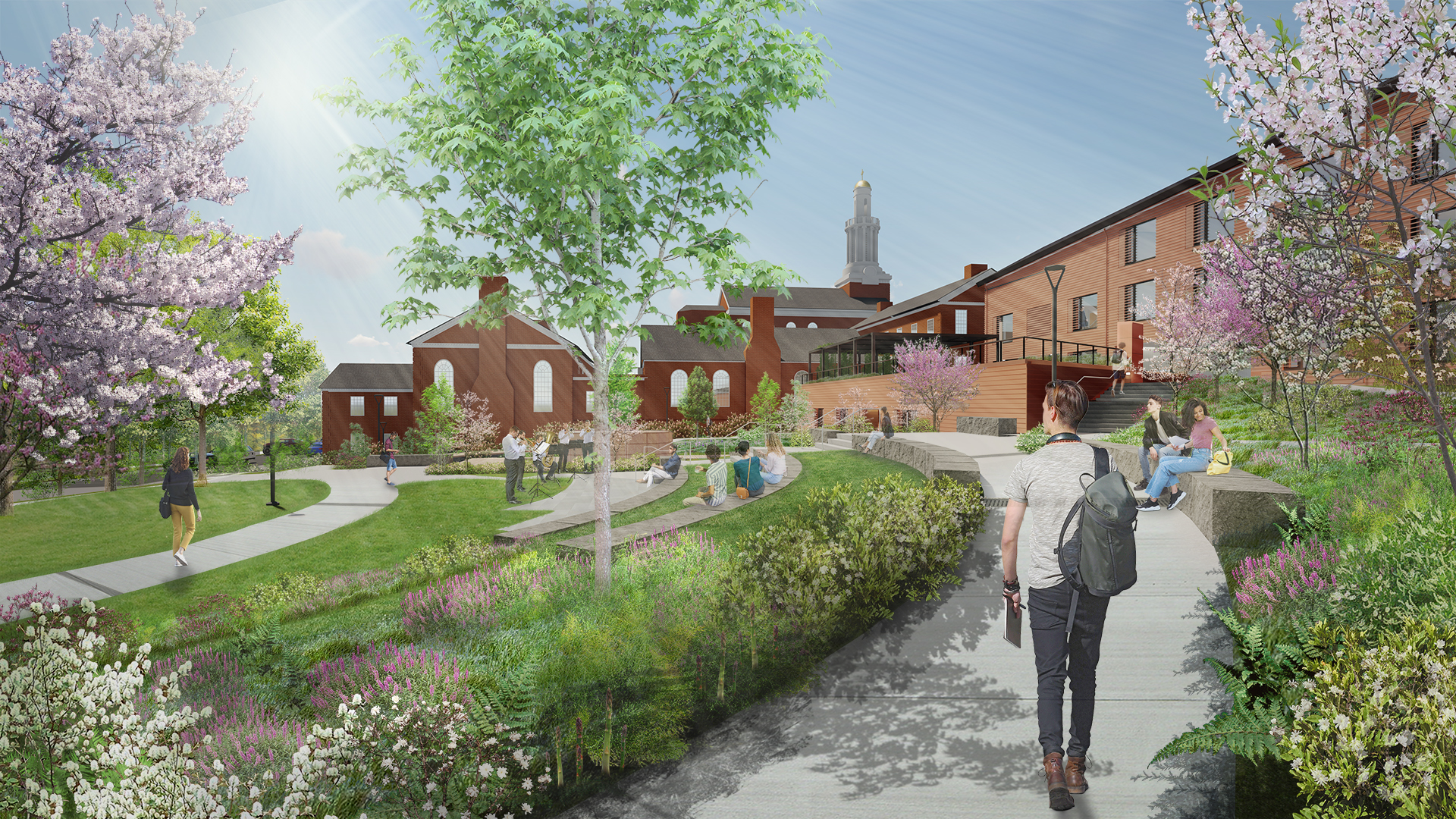
Related Stories
University Buildings | Nov 28, 2017
FXFOWLE and CO Architects collaborate on Columbia University School of Nursing building
The building has a ‘collaboration ribbon’ that runs throughout the building.
Sports and Recreational Facilities | Nov 27, 2017
The University of Memphis unveils the new home of the men’s basketball program
The Laurie-Walton Family Basketball Center will provide a strong commitment to donor and VIP cultivation.
Adaptive Reuse | Nov 10, 2017
Austin’s first indoor shopping mall becomes Austin Community College’s new digital media center
Renovation of the defunct mall represents Phase 2 of ACC’s $100 million adaptive reuse project.
University Buildings | Nov 6, 2017
A reconstructed building sets the standard for future rehabs at Cornell
Early AE collaboration played a major role in moving this project forward efficiently.
University Buildings | Oct 13, 2017
The University of Oklahoma receives its first residential colleges
The residential communities were designed by KWK Architects and combine living and learning amenities.
University Buildings | Oct 12, 2017
USC to debut new bioscience center next month
The building is designed to maximize recruitment and interaction of scientists and researchers.
University Buildings | Oct 12, 2017
The Center for Wounded Veterans is a first for a university campus
The Chez Family Foundation Center for Wounded Veterans in Higher Education is the first building of its kind on a U.S. college campus.
University Buildings | Oct 10, 2017
A 1920s cheese factory is now a university science building
Almost 15,000 sf of space was added to the original, four-story building.
Sustainability | Oct 9, 2017
New Arizona State University building will reach triple net-zero performance
The science and research complex will include an atrium biome filled with plants and water.
Higher Education | Sep 18, 2017
Campus landscape planning of the future: A University of Wisconsin-Madison case study
Recognizing that the future health of the campus and lake are interdependent, this innovative approach will achieve significant improvements in stormwater management and water quality within the university’s restored, more connected network of historic and culturally rich landscapes.



